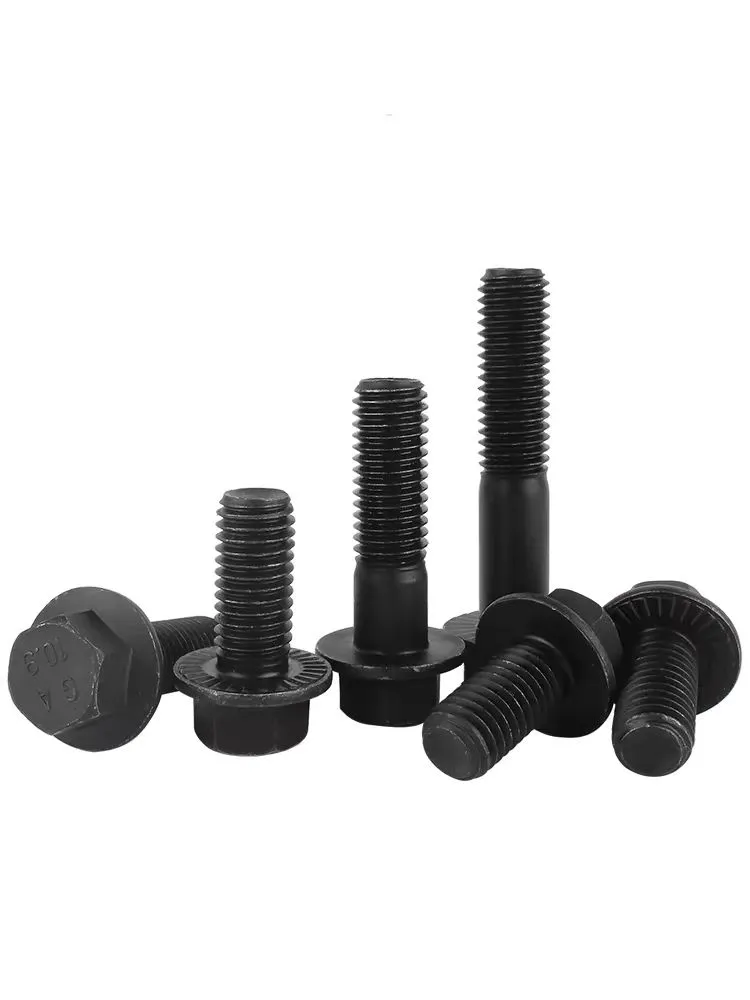

M14 Stud Bolt Specifications and Applications in Engineering and Construction
Aug . 18, 2024 06:22 Back to list
M14 Stud Bolt Specifications and Applications in Engineering and Construction
Understanding the Importance of M14 Stud Bolts in Engineering
In the world of engineering and construction, the choice of fastening solutions is critical to the integrity and durability of structures. Among various fastening components, the M14 stud bolt has emerged as a popular choice due to its versatility, strength, and reliability. Understanding the significance of M14 stud bolts is essential for engineers, manufacturers, and builders alike.
What is an M14 Stud Bolt?
An M14 stud bolt is a type of fastener characterized by its metric size, specifically having a nominal diameter of 14 millimeters. Unlike standard bolts that have a head on one end and threads on the other, stud bolts are typically threaded along their entire length, allowing for versatility in their application. They can be used in conjunction with nuts on both ends, which makes them suitable for high-stress environments where standard bolts may fail. The M14 designation refers not only to its diameter but also to international standards indicating its dimensions and mechanical properties.
Applications of M14 Stud Bolts
M14 stud bolts are widely used in a variety of industries including construction, automotive, aerospace, and manufacturing. In construction, they are commonly employed in heavy-duty applications such as securing structural steel beams, pre-fabricated elements, and in concrete anchoring systems. The ability to endure high tensile strength makes them ideal for critical load-bearing applications.
In the automotive industry, M14 stud bolts are often found in engine assemblies, where they secure engine components under severe vibrations and thermal fluctuations. Similarly, in the aerospace sector, they are utilized in aircraft assemblies that require lightweight yet strong fastening solutions.
stud bolt m14

Benefits of Using M14 Stud Bolts
One of the primary advantages of M14 stud bolts is their high tensile strength, which is crucial for ensuring the structural integrity of any assembly. Made from materials such as carbon steel or stainless steel, these bolts can resist corrosion and wear, making them suitable for both indoor and outdoor applications. The full-length threading also allows for efficient stress distribution, which minimizes the risk of failure when subjected to dynamic loads.
Additionally, M14 stud bolts possess excellent fatigue resistance, meaning they can withstand repeated loading and unloading cycles without succumbing to material fatigue. This makes them particularly valuable in industries where machinery operates continuously or in fluctuating conditions.
Installation Considerations
When installing M14 stud bolts, it's important to follow best practices to ensure optimal performance. This includes using the appropriate torque specifications to prevent over-tightening or under-tightening, both of which can lead to failure. Furthermore, the selection of compatible nuts and washers is essential for achieving a secure connection. Engineers and technicians should always refer to the manufacturer’s guidelines and industry standards when working with these fasteners.
Conclusion
In summary, M14 stud bolts are an integral component in various engineering applications due to their strength, versatility, and reliability. Whether in construction, automotive, or aerospace industries, their ability to withstand high stresses and fatigue makes them a preferred choice for engineers worldwide. As technology continues to advance, the manufacturing processes and materials for M14 stud bolts will likely evolve, further enhancing their performance and applications. Investing in high-quality M14 stud bolts is not just about fastening; it’s about ensuring the safety and durability of structures and machines in which they are used.
Latest news
-
Hot Dip Galvanized Bolts-About LongZe|High Strength, Corrosion Resistance
NewsJul.30,2025
-
High-Strength Hot Dip Galvanized Bolts - Hebei Longze | Corrosion Resistance, Customization
NewsJul.30,2025
-
Hot Dip Galvanized Bolts-Hebei Longze|Corrosion Resistance&High Strength
NewsJul.30,2025
-
High-Strength Hot-Dip Galvanized Bolts-Hebei Longze|Corrosion Resistance&High Strength
NewsJul.30,2025
-
Hot Dip Galvanized Bolts-Hebei Longze|Corrosion Resistance&High Strength
NewsJul.30,2025
-
Hot Dip Galvanized Bolts - Hebei Longze | Corrosion Resistance, High Strength
NewsJul.30,2025

